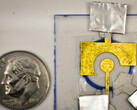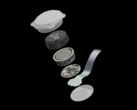Bone Biologics announced it is seeking patent protection for its rhNELL-1 polypeptide, a unique protein designed to promote targeted bone growth. While the filing is an early step, it signals the company's confidence in a technology that could offer a safer and more effective alternative for the many patients who undergo spinal fusion surgery each year.
Spinal fusion is a common procedure to treat debilitating back pain by joining two or more vertebrae, but it can have a high failure rate. Current treatments often rely on bone grafts or potent growth factors that can sometimes lead to complications, such as uncontrolled bone formation outside the targeted area.
Bone Biologics' approach centers on the NELL-1 protein, a growth factor that is naturally involved in bone development. Preclinical studies have shown that NELL-1 is uniquely capable of stimulating robust bone growth precisely where it is needed while simultaneously inhibiting the formation of fat cells, a common issue with other biologics. This targeted action could lead to more reliable fusions and fewer complications.
This patent application marks a major milestone in our mission to bring effective treatments to spine fusion patients. — Jeffrey Frelick, CEO of Bone Biologics.
The company is currently conducting a pilot clinical trial of its NELL-1-based bone graft device in Australia for patients with degenerative disc disease. Securing patent protection in the U.S. is a critical part of its strategy as it works to advance its clinical program and eventually seek FDA approval. The news of the patent filing caused a significant surge in the company's stock price, reflecting investor optimism about the technology's potential to disrupt the spinal implant market.



















